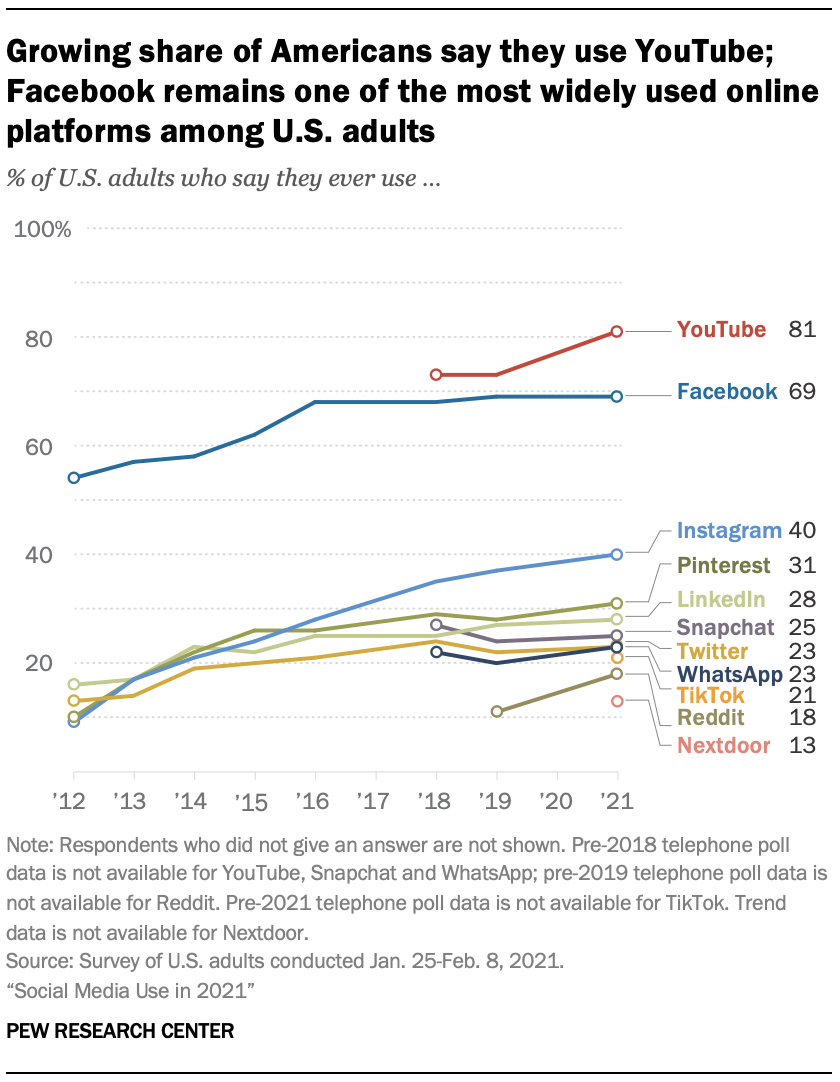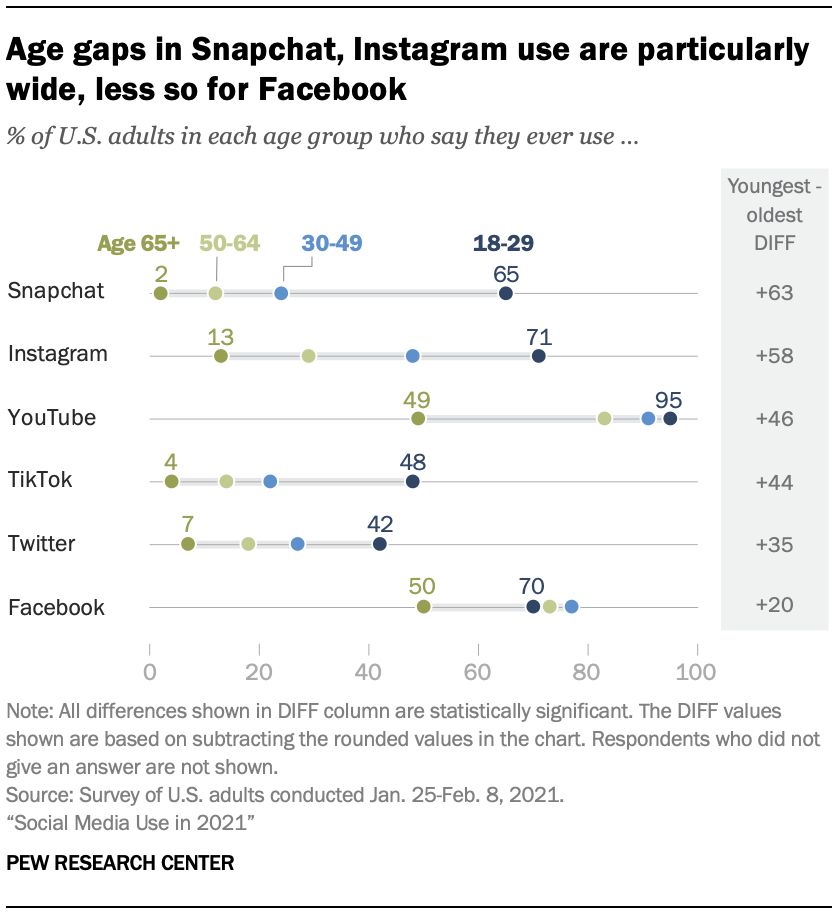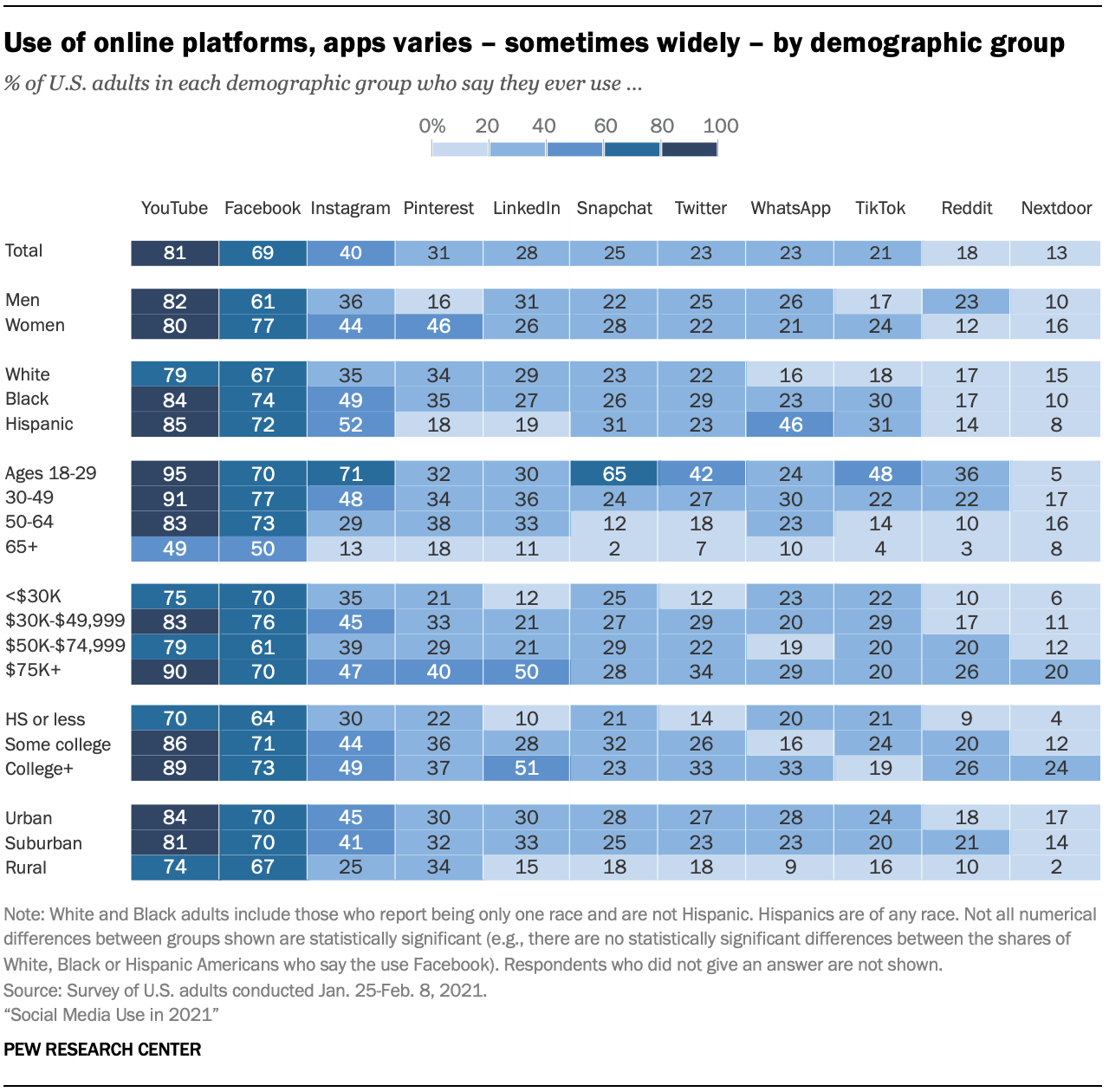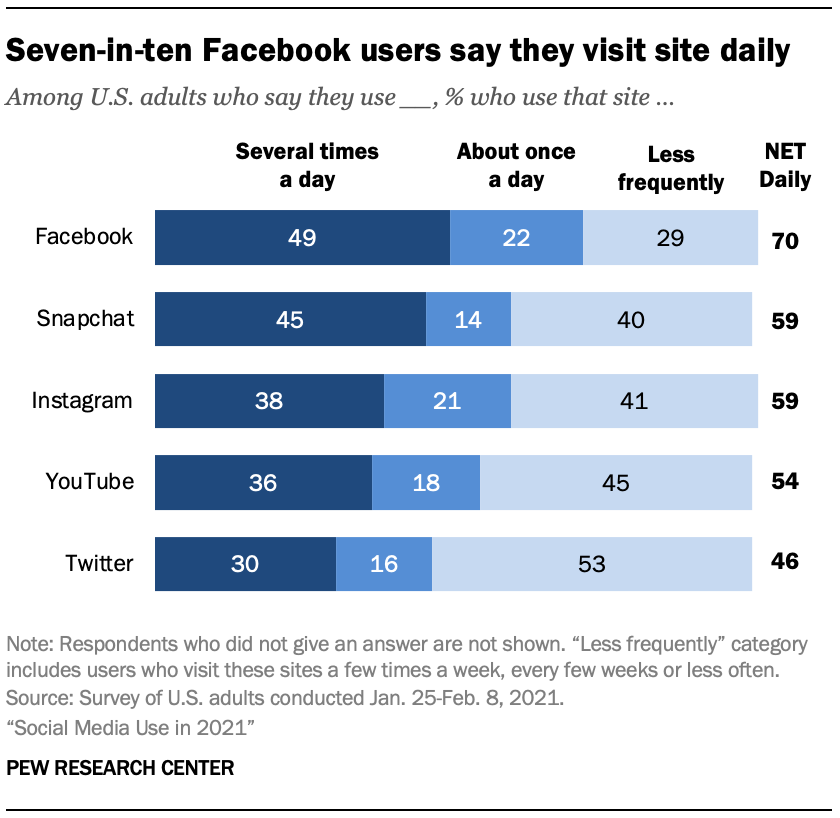- Privacy Policy

Home » Social Media Research Topics

Social Media Research Topics
Table of Contents
Social media has transformed how we communicate, work, and interact with the world, making it a fertile ground for research. As a constantly evolving platform, social media touches various fields like psychology, business, politics, and technology. Research in this area helps us understand its effects on individuals, societies, and economies. This post explores key research topics in social media, providing ideas and insights for students, academics, and professionals interested in studying its dynamics.

Social media research helps us uncover insights into digital behavior, identify trends, and understand the societal impacts of these platforms. With over 4 billion users globally, social media has profound effects on identity, privacy, public opinion, and even mental health. Research in this area can guide best practices, inform policies, and shed light on how social media reshapes our daily lives.
Key Areas for Social Media Research
- Impact of Social Media on Self-Esteem and Body Image : Examines how curated images and content affect users’ self-perception and self-worth.
- Addiction and Dependency : Studies social media addiction, its behavioral patterns, and its impact on overall mental health.
- Cyberbullying and Online Harassment : Explores the psychological impact of bullying and harassment online, especially among young users.
- Effectiveness of Influencer Marketing : Analyzes how influencers shape consumer attitudes and purchasing behavior.
- Trust and Authenticity in Influencer-Consumer Relationships : Investigates how perceived authenticity influences consumer trust and loyalty.
- Role of Micro-Influencers in Marketing : Looks into the power of smaller influencers compared to celebrity endorsements in driving engagement.
- User Awareness of Privacy Risks : Studies the awareness and attitudes of users towards privacy risks on social media.
- Data Collection and Personalization : Examines how data is collected, how it’s used for targeted advertising, and the ethics surrounding it.
- Impact of Privacy Policy Changes on User Behavior : Investigates how updates in privacy policies (such as Facebook’s and WhatsApp’s) affect user engagement and trust.
- Social Media as a Tool for Political Campaigns : Analyzes how politicians and campaigns use social media to shape public opinion and influence elections.
- Spread of Misinformation and Fake News : Explores the role of social media in spreading misinformation and its effect on public trust.
- Echo Chambers and Polarization : Studies how algorithms can create echo chambers, leading to increased polarization on topics like politics and health.
- Role of Social Media in Public Health Crises : Investigates how social media has been used to communicate information during health crises like the COVID-19 pandemic.
- Government and Organization Use of Social Media in Emergencies : Analyzes how governments and organizations use platforms to share emergency updates.
- Public Response to Crisis Information : Studies how the public engages with and responds to crisis information shared online.
- Influence of Social Media on Teen Identity : Looks into how social media affects identity formation and self-image among adolescents.
- Presentation of Self on Social Media : Studies how users curate and present different aspects of their identities on social platforms.
- Gender and Social Media : Explores how gender representation and stereotypes are reinforced or challenged on social media platforms.
- Social Media as a Learning Tool : Investigates the effectiveness of platforms like YouTube and LinkedIn in providing educational content.
- Digital Literacy and Responsible Usage : Studies how digital literacy training can help students use social media responsibly.
- Impact of Social Media on Student Performance : Examines how the use of social media affects students’ academic performance and time management.
- Role of AI in Content Moderation : Looks into how AI is being used to moderate content, identify hate speech, and prevent the spread of misinformation.
- Rise of Augmented Reality (AR) in Social Media : Examines how AR features like filters and virtual try-ons are transforming user experiences on platforms like Instagram and Snapchat.
- Social Commerce and E-commerce Integration : Studies the role of social media as a direct sales platform and its effect on e-commerce.
- Responsibility of Platforms in Preventing Harm : Analyzes the role social media companies play in protecting users from harmful content.
- Ethical Implications of Social Media Algorithms : Studies how recommendation algorithms may affect user behavior and content consumption.
- Social Media’s Role in Shaping Cultural Values : Explores how platforms influence cultural norms, values, and social behavior.
- Social Media’s Impact on Relationships
- Effects on Romantic Relationships : Studies the impact of social media on romantic relationships, including jealousy, trust issues, and communication.
- Family Dynamics in the Age of Social Media : Investigates how social media affects family relationships and parent-child interactions.
- Friendship and Social Networks : Looks into how online friendships compare to offline ones and the role of social media in maintaining long-distance relationships.
How to Choose a Research Topic in Social Media
- Identify Your Interests Start by identifying which aspect of social media interests you most—whether it’s mental health, marketing, privacy, or any other area.
- Review Recent Studies Use resources like Google Scholar to review recent research in your area of interest. This will give you an idea of the latest findings and areas that need further exploration.
- Narrow Your Focus Social media is a broad field, so try to narrow your focus. Instead of researching “Social Media and Mental Health,” specify it to something like “The Impact of Instagram on Teenage Body Image.”
- Formulate a Research Question Once you have a specific area, formulate a research question that will guide your study. A clear research question will help you structure your investigation and provide a clear goal.
- Consider Ethical Implications Social media research often involves sensitive topics, so consider the ethical implications. Ensure your research respects privacy and adheres to ethical guidelines.
Example Research Questions
- How does the use of Instagram filters affect self-esteem among adolescents?
- What role does social media play in spreading misinformation during public health crises?
- How do social media algorithms impact political polarization and public opinion?
- What factors influence consumer trust in influencer recommendations?
- How do different age groups respond to privacy policies on social media platforms?
Social media research covers a broad range of topics with far-reaching implications. By studying the effects, trends, and ethical considerations surrounding social media, researchers can contribute valuable insights into this digital phenomenon that impacts every aspect of modern life. Whether you’re a student, an academic, or a professional, exploring these topics can provide a deeper understanding of how social media shapes individuals and society.
- Chen, G. M., & Zhang, Y. (2019). Social Media Research: Theories, Constructs, and Applications . Journal of Communication, 69(3), 370–389.
- Boyd, D., & Ellison, N. B. (2017). Social Network Sites: Definition, History, and Scholarship . Journal of Computer-Mediated Communication, 13(1), 210–230.
- Aral, S., Eckles, D., & Levandoski, J. (2020). The Impact of Social Media on Well-being and Social Comparison . Annual Review of Psychology, 71, 639-665.
About the author
Muhammad Hassan
Researcher, Academic Writer, Web developer
You may also like

500+ Climate Change Research Topics

Science Research Topics

Mental Health Research Topics

Cyber Security Research Topics


Communication Research Topics

500+ Business Research Topics
Numbers, Facts and Trends Shaping Your World
Read our research on:
Full Topic List
Regions & Countries
- Publications
- Our Methods
- Short Reads
- Tools & Resources
Read Our Research On:
- Social Media Use in 2021
A majority of Americans say they use YouTube and Facebook, while use of Instagram, Snapchat and TikTok is especially common among adults under 30.
Table of contents.
- Acknowledgments
- Methodology
To better understand Americans’ use of social media, online platforms and messaging apps, Pew Research Center surveyed 1,502 U.S. adults from Jan. 25 to Feb. 8, 2021, by cellphone and landline phone. The survey was conducted by interviewers under the direction of Abt Associates and is weighted to be representative of the U.S. adult population by gender, race, ethnicity, education and other categories. Here are the questions used for this report , along with responses, and its methodology .
Despite a string of controversies and the public’s relatively negative sentiments about aspects of social media, roughly seven-in-ten Americans say they ever use any kind of social media site – a share that has remained relatively stable over the past five years, according to a new Pew Research Center survey of U.S. adults.

Beyond the general question of overall social media use, the survey also covers use of individual sites and apps. YouTube and Facebook continue to dominate the online landscape, with 81% and 69%, respectively, reporting ever using these sites. And YouTube and Reddit were the only two platforms measured that saw statistically significant growth since 2019 , when the Center last polled on this topic via a phone survey.
When it comes to the other platforms in the survey, 40% of adults say they ever use Instagram and about three-in-ten report using Pinterest or LinkedIn. One-quarter say they use Snapchat, and similar shares report being users of Twitter or WhatsApp. TikTok – an app for sharing short videos – is used by 21% of Americans, while 13% say they use the neighborhood-focused platform Nextdoor.
Even as other platforms do not nearly match the overall reach of YouTube or Facebook, there are certain sites or apps, most notably Instagram, Snapchat and TikTok, that have an especially strong following among young adults. In fact, a majority of 18- to 29-year-olds say they use Instagram (71%) or Snapchat (65%), while roughly half say the same for TikTok.
These findings come from a nationally representative survey of 1,502 U.S. adults conducted via telephone Jan. 25-Feb.8, 2021.
With the exception of YouTube and Reddit, most platforms show little growth since 2019
YouTube is the most commonly used online platform asked about in this survey, and there’s evidence that its reach is growing. Fully 81% of Americans say they ever use the video-sharing site, up from 73% in 2019. Reddit was the only other platform polled about that experienced statistically significant growth during this time period – increasing from 11% in 2019 to 18% today.
Facebook’s growth has leveled off over the last five years, but it remains one of the most widely used social media sites among adults in the United States: 69% of adults today say they ever use the site, equaling the share who said this two years prior.
Similarly, the respective shares of Americans who report using Instagram, Pinterest, LinkedIn, Snapchat, Twitter and WhatsApp are statistically unchanged since 2019 . This represents a broader trend that extends beyond the past two years in which the rapid adoption of most of these sites and apps seen in the last decade has slowed. (This was the first year the Center asked about TikTok via a phone poll and the first time it has surveyed about Nextdoor.)
Adults under 30 stand out for their use of Instagram, Snapchat and TikTok
When asked about their social media use more broadly – rather than their use of specific platforms – 72% of Americans say they ever use social media sites.
In a pattern consistent with past Center studies on social media use, there are some stark age differences. Some 84% of adults ages 18 to 29 say they ever use any social media sites, which is similar to the share of those ages 30 to 49 who say this (81%). By comparison, a somewhat smaller share of those ages 50 to 64 (73%) say they use social media sites, while fewer than half of those 65 and older (45%) report doing this.
These age differences generally extend to use of specific platforms, with younger Americans being more likely than their older counterparts to use these sites – though the gaps between younger and older Americans vary across platforms.

Majorities of 18- to 29-year-olds say they use Instagram or Snapchat and about half say they use TikTok, with those on the younger end of this cohort – ages 18 to 24 – being especially likely to report using Instagram (76%), Snapchat (75%) or TikTok (55%). 1 These shares stand in stark contrast to those in older age groups. For instance, while 65% of adults ages 18 to 29 say they use Snapchat, just 2% of those 65 and older report using the app – a difference of 63 percentage points.
Additionally, a vast majority of adults under the age of 65 say they use YouTube. Fully 95% of those 18 to 29 say they use the platform, along with 91% of those 30 to 49 and 83% of adults 50 to 64. However, this share drops substantially – to 49% – among those 65 and older.
By comparison, age gaps between the youngest and oldest Americans are narrower for Facebook. Fully 70% of those ages 18 to 29 say they use the platform, and those shares are statistically the same for those ages 30 to 49 (77%) or ages 50 to 64 (73%). Half of those 65 and older say they use the site – making Facebook and YouTube the two most used platforms among this older population.
Other sites and apps stand out for their demographic differences:
- Instagram: About half of Hispanic (52%) and Black Americans (49%) say they use the platform, compared with smaller shares of White Americans (35%) who say the same. 2
- WhatsApp: Hispanic Americans (46%) are far more likely to say they use WhatsApp than Black (23%) or White Americans (16%). Hispanics also stood out for their WhatsApp use in the Center’s previous surveys on this topic.
- LinkedIn: Those with higher levels of education are again more likely than those with lower levels of educational attainment to report being LinkedIn users. Roughly half of adults who have a bachelor’s or advanced degree (51%) say they use LinkedIn, compared with smaller shares of those with some college experience (28%) and those with a high school diploma or less (10%).
- Pinterest: Women continue to be far more likely than men to say they use Pinterest when compared with male counterparts, by a difference of 30 points (46% vs. 16%).
- Nextdoor: There are large differences in use of this platform by community type. Adults living in urban (17%) or suburban (14%) areas are more likely to say they use Nextdoor. Just 2% of rural Americans report using the site.

A majority of Facebook, Snapchat and Instagram users say they visit these platforms on a daily basis

While there has been much written about Americans’ changing relationship with Facebook , its users remain quite active on the platform. Seven-in-ten Facebook users say they use the site daily, including 49% who say they use the site several times a day. (These figures are statistically unchanged from those reported in the Center’s 2019 survey about social media use.)
Smaller shares – though still a majority – of Snapchat or Instagram users report visiting these respective platforms daily (59% for both). And being active on these sites is especially common for younger users. For instance, 71% of Snapchat users ages 18 to 29 say they use the app daily, including six-in-ten who say they do this multiple times a day. The pattern is similar for Instagram: 73% of 18- to 29-year-old Instagram users say they visit the site every day, with roughly half (53%) reporting they do so several times per day.
YouTube is used daily by 54% if its users, with 36% saying they visit the site several times a day. By comparison, Twitter is used less frequently, with fewer than half of its users (46%) saying they visit the site daily.
- Due to a limited sample size, figures for those ages 25 to 29 cannot be reported on separately. ↩
- There were not enough Asian American respondents in the sample to be broken out into a separate analysis. As always, their responses are incorporated into the general population figures throughout this report. ↩
Sign up for our weekly newsletter
Fresh data delivery Saturday mornings
Sign up for The Briefing
Weekly updates on the world of news & information
- Social Media
- User Demographics
- Social Media Fact Sheet
More Americans – especially young adults – are regularly getting news on TikTok
Many israelis say social media content about the israel-hamas war should be censored, whatsapp and facebook dominate the social media landscape in middle-income nations, germans stand out for their comparatively light use of social media, most popular, report materials.
- 2021 Core Trends Survey
901 E St. NW, Suite 300 Washington, DC 20004 USA (+1) 202-419-4300 | Main (+1) 202-857-8562 | Fax (+1) 202-419-4372 | Media Inquiries
Research Topics
- Email Newsletters
ABOUT PEW RESEARCH CENTER Pew Research Center is a nonpartisan, nonadvocacy fact tank that informs the public about the issues, attitudes and trends shaping the world. It does not take policy positions. The Center conducts public opinion polling, demographic research, computational social science research and other data-driven research. Pew Research Center is a subsidiary of The Pew Charitable Trusts , its primary funder.
© 2024 Pew Research Center

IMAGES
VIDEO